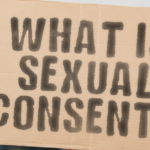‘Stealthing’ Amounts to Sexual Assault in New South Wales

Perhaps needless to say, it is not a crime to have unprotected sexual intercourse with a consenting partner – provided of course they have reached the age of consent, have the mental capacity to provide consent and have in fact consented to engaging in the activity without a condom.
However, recently introduced affirmative consent laws have made it clearer than ever that removing a condom during sexual intercourse, or failing to wear one without prior consent, an act known as ‘stealthing’, is indeed an offence – namely the crime of sexual assault.
High school students to be introduced to the term
Stealthing is not necessarily a well-known term, but the New South Wales government is working on improving sex education by introducing high school students to its meaning and potential implications.
Recent polls show that four in five Australians (81%) agree stealthing should be a crime, however 65% of respondents to the same poll admitted they were not familiar with the term.
Of the 35% who said they were familiar with it, only 15% correctly identified its definition.
When it came to identifying whether or not stealthing was a crime in their state or territory, 56% of the poll recipients didn’t know.
A 2018 study conducted by the Monash University, which surveyed visitors to a sexual health clinic in Victoria, found that 32% of women and 19% of men (who had sex with men) had experienced stealthing. Only about 1% reported the act to police.
Stealthing is a form of sexual violence
That same study found female sex workers were at particular risk and were more than three times likely than other women attending the clinic to have experienced stealthing.
Establishing that an act of stealthing amounts to sexual assault was made far easier under law enacted last year, which introduced an “affirmative sexual consent” model.
The new definition of sexual consent requires all participants in sexual activity to demonstrate they took active measures to ensure the other party or parties were consenting at each stage of as well as to each sexual act. Failing to do so can mean consent was not present, meaning the participant who neglected to obtain affirmative consent can be found guilty of the corresponding sexual offence or offences.
These laws are, among other things, meant to better protect those who may “freeze” in traumatic situations and therefore do not communicate consent, although they are not actually agreeing to the activity.
However, the laws have come under criticism by creating confusion as to what may amount to consent, being unrealistic in practice given the organic nature of sexual activity and having the potential to lead to wrongful convictions.
Stealthing criminalised in most jurisdictions
‘Stealthing’ is considered to be a form of sexual violence for a number of reasons, including that not wearing a condom can place a partner at risk of catching a sexually transmitted disease or falling pregnant.
Stealthing is now criminalised in four Australian jurisdictions – Tasmania, NSW, ACT and Victoria.
Queensland, South Australia and Western Australia are either considering introducing new legislation or assessing current legislation for potential reform. Queensland recently introduced new laws to Parliament which would make stealthing a form of rape/ sexual assault.
The penalty for rape in Queensland is life imprisonment.
The offence of sexual assault in New South Wales
Sexual assault is an offence under section 61i of the Crimes Act 1900, which carries a maximum penalty of 14 years in prison.
To establish the offence, the prosecution must prove beyond reasonable doubt that:
- The defendant had sexual intercourse with another person,
- The other person did not consent, ithout the consent of the other person, and
- The defendant knew the other person did not consent, or was reckless as to whether the other person was consenting, or had no reasonable grounds to believe the other person was consenting.
Sexual intercourse is defined by section 61HA as:
- Penetration to any extent of a female’s genitalia, or the anus of any person, by any part of, or object used by, another person, or
- Introduction of a penis into the mouth of another person, or
- Cunnilingus, or
- The continuation of any of the mentioned activities.
The definition of sexual consent in New South Wales
On 1 June 2022, the definition of sexual consent previously contained in section 61HE of the Crimes Act 1900 (NSW) was repealed and replaced by new sections 61HF to 61HK, with sections 61HI to 61HK setting out the substance of the new definition.
Section 61HI(1) sets out that a person consents to sexual activity if he or she “freely and voluntarily agrees” to the activity.
The subsections that follow attempt to clarify that phrase by making clear that:
- Consent can be withdrawn by words or conduct at any time,
- Sexual activity that occurs after the withdrawal of consent is deemed to be without consent,
- Consent is not established merely because a person does not offer physical or verbal resistance,
- Consent to one form of sexual activity is not taken as amounting to consent to another. In that regard, the Act expressly states that consent sexual activity with a condom does not amount to consent to such activity without one, and
- Consent to sexual activity on one occasion is not taken as amounting to consent on another.
Section 61HJ(1) makes clear that sexual consent does not exist if a person:
- Does not say or do anything to communicate consent (which is sometimes referred as the requirement to obtain affirmative consent),
- Does not have the capacity to consent (due, for example, to a cognitive impairment that requires supervision or social habilitation in connection with daily life activities),
- Is so affected by alcohol or another drug/s as to be incapable of consenting,
- Is unconscious or asleep,
- Participates because of force, fear of force or harm of any kind to him or her, another person, an animal or property, regardless of whether the feared force or conduct actually occurred, or was a single act or an ongoing pattern of conduct,
- Participates because of coercion, blackmail or intimidation regardless of when it occurred or whether it was a single act or an ongoing pattern of conduct,
- Participates because he or she, or another person, is unlawfully detained,
- Participates because he or she is overborne by the abuse of a relationship of authority, trust or dependence,
- Participates because of a mistaken belief about the nature or purpose of the sexual activity, including whether it is for health, hygienic or cosmetic purposes,
- Participates because of a mistaken belief about the identity of the other person or that they are married, or
- Participates because of a fraudulent inducement, which is not a misrepresentation about the other person’s income, wealth or feelings.
Section 61HK sets out the circumstances where a person is taken to know the person with whom they are engaging in sexual activity does not consent.
Subsection 61HK(1) stipulates that a person is taken to know the other person does not consent to the sexual activity if the person:
- Actually knows the other person does not consent, or
- Is reckless as to whether the other person does not consent, or
A person is also taken to know the other person does not consent if any belief the person has that the other person consents is not reasonable in the circumstances.
In that regard, subsection 61HK(2) states that sexual activity is not reasonable if the person did not, within a reasonable time before or at the time of it, say or do anything to find out if the other person consents.
Subsection 61HK(3) provides that the requirement of reasonableness does not apply if the defendant shows that he or she had a cognitive impairment or mental health impairment at the time of the conduct, and the impairment was a substantial cause of him or her not saying or doing anything at the time,
Subsection 61HK(4) states that the onus rests on the defendant to prove, on the balance of probabilities, that the belief as to consent was reasonable.
The section forms part of the legal requirement to obtain affirmative consent.
Subsection 61HK(5) states that for the purpose of making a finding regarding consent, the ‘fact finder’:
- Must consider all of the circumstances of the case including what, if anything, the defendant said or did, but
- Must not consider any self-induced intoxication of the defendant.
Man pleads guilty to sexual assault arising from stealthing
It has been reported that a 21 year old Wollongong man will be the first person to be sentenced for an act of stealthing under the new sexual consent laws later this month, after pleading guilty to one count of having sexual intercourse without consent after admitting he removed his condom during a consensual BDSM session with a sex worker.
According to testimony given in court, the young man, Adrian Perez, hired a sex worker for a half-hour session involving BDSM, (bondage, discipline, sadism, and masochism) in April 2022.
The complainant agreed to be tied up, gagged and blindfolded during the session, but she told Mr Preez the use of a condom was “non-negotiable”.
Mr Perez agreed, and initially used a condom but removed it without the woman’s consent or knowledge, because he couldn’t maintain an erection. He continued to have sex with the woman.
The sex worker only noticed the condom on a chair after he had left. When she confronted Mr Perez via text the next day he admitted that he had removed the condom without telling her.
The victim reported the sexual assault to police and went to Wollongong Hospital for a sexual assault investigation kit. The court heard Mr Perez’s DNA was found inside the woman and on the condom.
He was arrested five months later and is due to be sentenced later this month.








